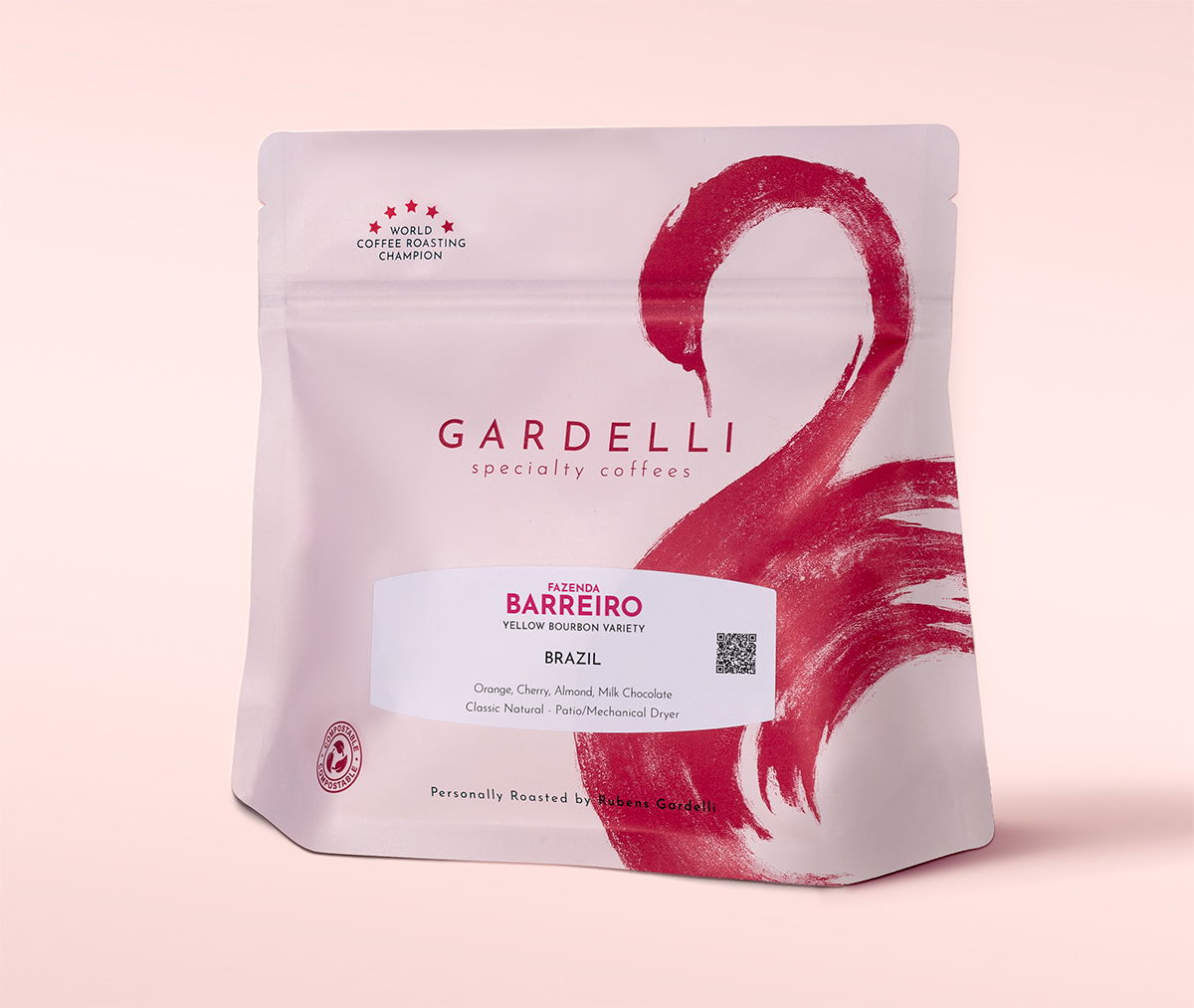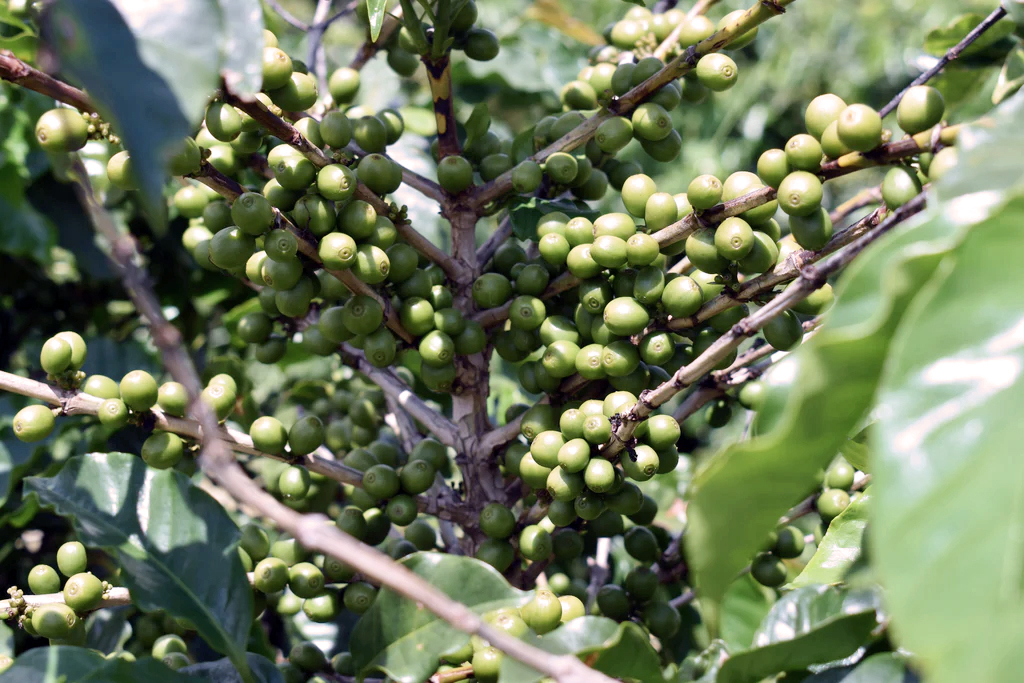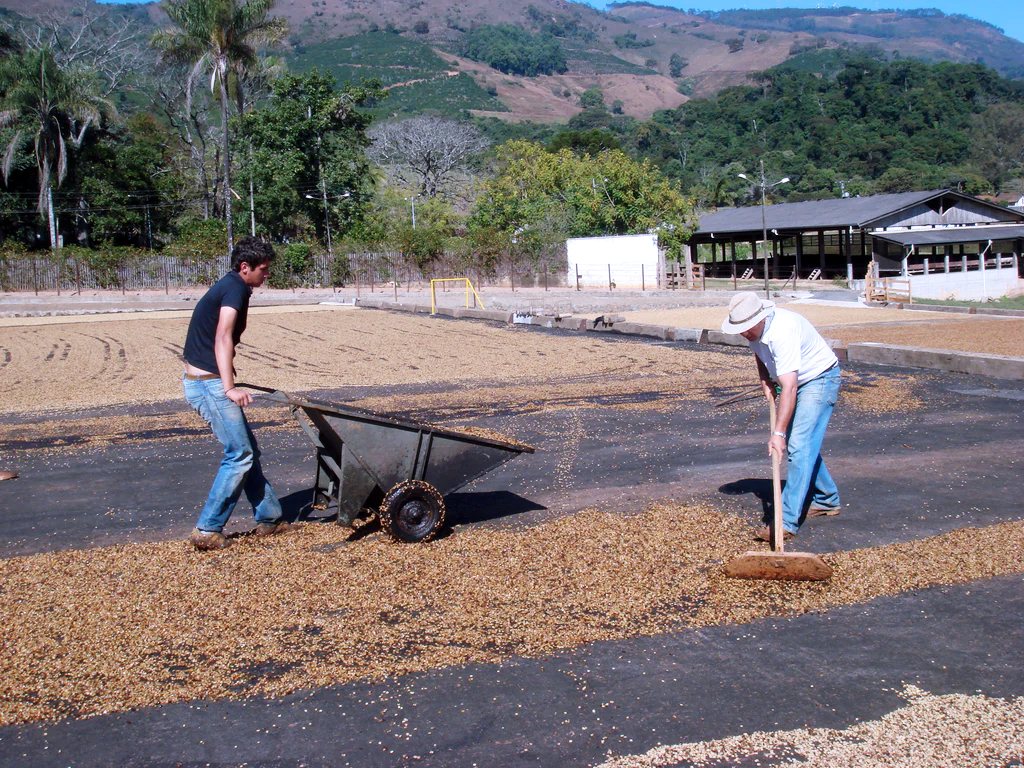












Brazil
Cup Notes: Orange, Cherry, Almond, Milk Chocolate
A new Brazilian harvest, straight from the renowned Fazenda Barreiro, offers a slightly sweet and clean flavour that makes it a strong yet well-rounded coffee.
Suggested for espresso and filter
when we roast
We freshly roast to order all coffees on Monday, Wednesday and Friday (excluding national holidays), and ship the same day! Cut-off time is 11:59pm (UTC+1) of the day before the roast day. *We only ship whole beans*
Fazenda Barreiro was established in 1820 by Captain Joaquim Bernardes da Costa Junqueira, who acquired uncultivated land near the spa town of Poços de Caldas in the southern region of Minas Gerais. The property later became a cornerstone of coffee farming, as his son, Colonel Agostinho José da Costa Junqueira, began cultivating coffee towards the end of the 19th century. Situated at an average altitude of 1150 masl in the fertile São Domingos mountain range, the farm benefits from the region’s mild climate, ideal for coffee production.
For over 30 years, Colonel Agostinho’s great-grandson, Francisco Otávio Lotufo, together with his family, has been committed to combining traditional coffee farming practices with a modern approach to sustainability. Francisco prioritizes preserving the farm’s natural resources, including forests, water sources, and local wildlife, and supports 30 families residing on the farm.
Fazenda Barreiro remains in the family, now operated by Icatú Agropecuária Ltda. Francisco Otávio Lotufo and his son, Manuel Otávio Lotufo, continue to uphold the family’s legacy. Known for producing high-quality coffee varieties—such as Bourbon, Catuaí, Catucaí, Mundo Novo, Acaiá, Obatã, and Icatú—grown at elevations between 980 and 1300 masl, the farm has earned accolades in coffee quality competitions locally in Poços de Caldas, across Minas Gerais, and on national and international stages, including the prestigious Cup of Excellence (7th place in 2004 and 18th in 2006).
Today, Fazenda Barreiro is committed to sustainability, dedicating 40% of its land to preserving native forests, springs, and waterways. The family’s dedication to environmental stewardship and worker welfare has earned their farm certifications from Rainforest Alliance, UTZ Certified, and Certifica Minas.

Yellow Bourbon is a Brazilian coffee variety that originated from a natural mutation of Red Bourbon and Yellow Botucatu in the 1930s, near Pederneiras, São Paulo. It is distinguished by its yellow berries, a characteristic resulting from the “Xanthocarpa” gene pairing. Yellow Bourbon trees reach up to 2.8 meters in height and are known for early ripening. The variety performs best at elevations of 1,000 masl, where careful harvesting and post-harvest processes help showcase its quality.
First studied by the Agronomic Institute of Campinas (IAC) in the 1940s, Yellow Bourbon was selected for commercial planting due to its productivity. However, its low-medium yield and susceptibility to leaf rust limited its widespread adoption. With renewed interest from the specialty coffee movement, the IAC has resumed studies, focusing on identifying robust plants with excellent cup quality. Yellow Bourbon is celebrated for its sweet, fruity flavour profile, including ripe fruit and raisin notes, pronounced citric acidity, and a complex aroma.
In 2017, a Brazilian Yellow Bourbon achieved a score of 92.33 at the Cup of Excellence competition, selling for $126 per pound, marking a resurgence in its popularity and value on the global market.

When the coffee cherries are ripe, they are harvested either by machine or by hand, depending on the location of the plot on the farm. The cherries are then taken to the wet mill, where they are washed and sorted by density and ripeness. After sorting, the coffee is moved to drying patios for an initial drying period of 5 to 7 days, during which it is turned regularly throughout the day.
Once partially dried, the coffee is transferred to mechanical dryers, where it is dried at 28°C for nine hours a day until the beans reach the moisture content of approximately 11%.
Finally, the beans are placed in storage bins until they are ready to be transported to the warehouse.
